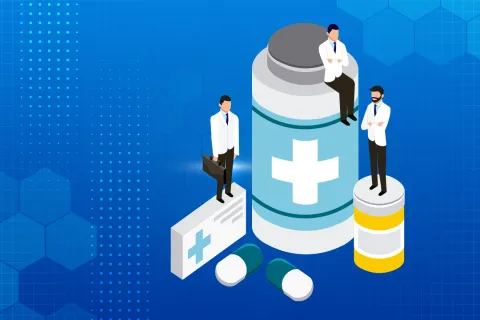
The pharmaceutical industry is heavily regulated, with compliance to stringent regulations such as Good Manufacturing Practices (GMPs), Good Clinical Practices (GCPs), and the Health Insurance Portability and Accountability Act (HIPAA) being crucial for maintaining patient safety and ensuring the integrity of clinical trials. As the industry increasingly adopts cloud computing, ensuring compliance with these regulations becomes even more complex. This blog explores how audit compliance and cloud adoption affect IT security within the pharmaceutical industry, focusing on the challenges and best practices for maintaining Regulatory compliance.
The Impact of Cloud Adoption on IT Security
Cloud computing has revolutionized how pharmaceutical companies operate, offering flexibility, scalability, and cost savings. However, this shift also introduces new security risks and compliance challenges. Cloud service providers (CSPs) are responsible for securing their environments, but customers must also ensure that their data and applications are secure and compliant. This shared responsibility model can be complex, especially for companies handling sensitive data and complying with strict regulations.
Challenges of Cloud Compliance
- Shared Responsibility - Cloud Service Providers (CSPs): CSPs are responsible for the security of their cloud environments, including physical security, network security, and data encryption. However, they are not responsible for the security of the data and applications within the cloud.
- Pharmaceutical Companies: Pharmaceutical companies must ensure their data and applications are secure and compliant within the cloud environment. This includes implementing strong access controls, encryption, and regular security audits.
- Regulatory Compliance: HIPAA requires that protected health information (PHI) be protected from unauthorized access and use. Cloud environments must be designed and implemented to meet HIPAA requirements.
- GMPs and GCPs: These regulations require that pharmaceutical companies maintain the integrity and confidentiality of their data, including clinical trial data and manufacturing records. Cloud environments must be designed to meet these requirements.
- Data Encryption: Data encryption is crucial to protect sensitive information in transit and at rest. Pharmaceutical companies must ensure that their cloud providers use strong encryption methods.
- Access Controls: Implementing strong access controls, including multi-factor authentication (MFA) and least privilege access, is essential to prevent unauthorized access to sensitive data.
Best Practices for Cloud Compliance
- Risk Assessment: Identify and Prioritize Risks: Conduct a thorough risk assessment to identify potential risks and prioritize them based on their impact and likelihood.
- Develop a Risk Management Plan: Mitigate identified risks, including implementing security controls and monitoring.
- Cloud Security Audits: Conduct regular security audits to ensure that cloud environments are secure and compliant. This includes evaluating the security posture of the CSP and the company's security controls.
- Third-party Audits: Engage third-party auditors for independent assessments of cloud environments to ensure compliance with Regulatory requirements.
- Compliance Frameworks: ISO/IEC 27001 and 27002: These standards provide a framework for information security management and can be used to evaluate the security practices of cloud providers.
- HIPAA and GxP Compliance: Ensure that cloud providers comply with HIPAA and GxP regulations and that the company's security practices align with these regulations.
- Continuous Monitoring: Monitor cloud environments to detect and respond to security incidents.
- Regular Security Updates: Ensure cloud environments are updated with the latest security patches and updates.
Conclusion
The pharmaceutical industry's adoption of cloud computing presents opportunities and challenges for maintaining IT security and compliance. By understanding the shared responsibility model, implementing robust security controls, and conducting regular audits and risk assessments, pharmaceutical companies can ensure their cloud environments are secure and compliant with Regulatory requirements. This approach protects sensitive data and maintains the integrity of clinical trials and patient safety.
Freyr helps pharmaceutical companies develop and implement robust security controls, conduct risk assessments, and establish continuous monitoring processes to ensure ongoing compliance. By partnering with Freyr, you can leverage our expertise and experience to successfully adopt cloud computing while maintaining the highest standards of IT security and Regulatory compliance.









